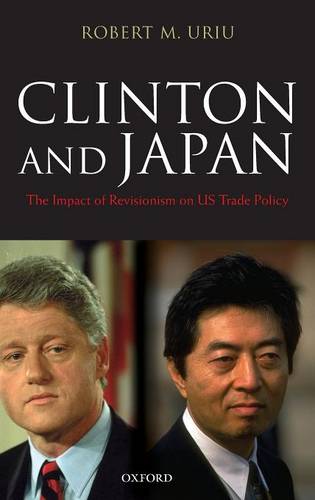Clinton and Japan: The Impact of Revisionism on US Trade Policy
Uriu, Robert M.
£61.00 £44.52
1 available
Book Details:
Publisher:OUP Oxford
ISBN:9780199280568
Published Date:22nd October 2009
Dimensions:162 X 238 X 26 mm
Weight:0.5989 kilograms
Pages:294
Binding:Hardcover
Illustrations:2 Figures, 6 Tables
Condition:New
Short Description
This book chronicles how a controversial set of policy assumptions about the Japanese economy, known as revisionism, rose to become the basis of the trade policy approach of the Clinton administration, and details how Japan refused to accept US trade solutions and fought to discredit revisionism.
Full Description
This book chronicles how a controversial set of policy assumptions about the Japanese economy, known as revisionism, rose to become the basis of the trade policy approach of the Clinton administration. In the context of growing fear over Japan's increasing economic strength, revisionists argued that Japan represented a distinctive form of capitalism that was inherently closed to imports and that posed a threat to U.S. high-tech industries. Revisionists advocated a "managed trade" solution in which the Japanese government would be forced to set aside a share of the market for foreign goods. The author describes the role that various American academics, government officials, and business leaders played in developing revisionist thought. Revisionism was at its peak just as the Clinton administration came into office. The author uses extensive interviews with policy makers to trace the internal discussions inside the Clinton White House, which culminated in the adoption of revisionist policy and then to demands for "results-oriented" trade agreements during the Framework negotiations. This book details how Japan refused to accept these managed trade solutions, and fought to discredit revisionism and to rally global support against American unilateralism.


